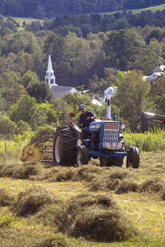Community Members,
I would like to periodically post a column in our local publications or on Front Porch Forum. It is important that you have an opportunity to hear from me about what is happening in the Rutland Southwest Supervisory Union Schools.
I am pleased to tell you that we are working very hard to align our curriculum in each of our schools to the Common Core Standards. A number of years past, Vermont educators established standards in all curriculum areas. When No Child Left Behind legislation happened on the national level, Vermont educators determined that they would not lower the standards that had been established for every student in every Vermont classroom. What standards based education meant was that every student would be expected to meet the same outcomes in each curriculum content area at every grade level. As a result, teachers have been held accountable for students meeting very high standards and students have been held accountable for meeting the outcomes.
Vermont students have done very well on the NAEP (National Assessment of Educational Progress) which is given to fourth, eighth, and tenth grade students in all states across the country. Vermont also has the highest graduation rate. However, according to No Child Left Behind, many schools are not meeting the desired outcomes, particularly for students who are disadvantaged or disabled. Schools have been measured yearly for students in Grades 3 through 8 and grade 11 in English/ Language Arts and Math and also in Writing in grades 5, 8, and 11 and in science in grades 4, 8 , & 11 on the New England Common Assessment Program (NECAP) to determine if students are achieving the expected outcomes.
Diane Ravitch, in her newly released book Reign of Error, shares that testing and accountability as a result of NCLB have had a negative impact on American public education. The vast majority of teachers are doing a good job educating our students. The challenge is that all students must show mastery of the standards on one test battery which is given to every student on the same day. That would be as if we asked every 16 year old to be ready to take the driving test on the same day every year. The NECAP is now a paper and pencil test. In 2015, the new testing will be computerized.
What happens to those students who master the outcomes on different days? What happens to those students who need to show that they understand the concept through a hands-on approach rather than a paper and pencil or computer test of short or multiple choice answers? The new Common Core Standards adopted in 44 states will be assessed by the PARRC (Partnership for Assessment of Readiness College and Careers) or the SBAC (Smarter Balanced Assessment Consortium). The assessments will be computerized and adjust to students levels of knowledge and achievement. Student outcomes in the Common Core Standards will shift from being able to answer content questions to being able to apply content knowledge to solving real life problems. This is critical as we are preparing our students to be career ready or college prepared.
We are in the process in RSWSU schools of shifting to Common Core Standards and we are aligning our curriculum so that there is both horizontal and vertical alignment (horizontal – all classrooms of the same grade; vertical – from one grade to the next). This is critical for all our educators so that we have the same expected common core outcomes for all students and that all students will have consistent expectations as they learn the skills, content, and application moving from one grade to the next.
Respectfully yours,
Joan Paustian, Ed D, RSWSU Superintendent

